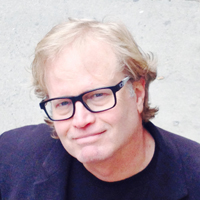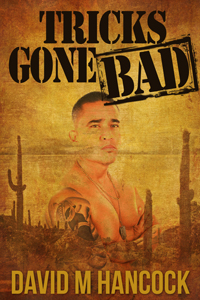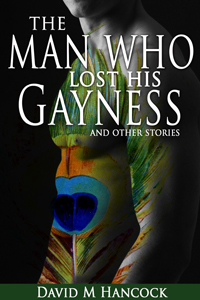“Journalists are old souls
If not at first, eventually
Foot soldiers in the war for history”
— David Hancock“Journalism will kill you,
but it will keep you alive while you’re at it”
— Horace Mann
I’ve been a journalist for more than 30 years and can honestly say I think it’s the best career in the world.
CBS News
 From 2002-17 I was an assignment editor, front door editor and managing editor at CBSNews.com, the main news web site for CBS News in New York City.
From 2002-17 I was an assignment editor, front door editor and managing editor at CBSNews.com, the main news web site for CBS News in New York City.
I had various managerial roles, but my bread and butter through the years was assigning stories to producers and running the front door of CBSNews.com. I represented CBS News online, responding aggressively to breaking news. My news sense and experience kept the web site off the rocks during many tumultuous and confusing breaking stories. When the storm was breaking I was making decisions on how best to use staffing and resources. I made the judgement calls on using victim photos from social media sites. I was tireless in seeking video to accompany stories from within the CBS Network and from outside sources. I handled social promotion of top stories for several years until a team took over. I mentored young journalists and was a strict disciplinarian against sloppy reporting, loose writing, typos and blurry images.

David Hancock worked at CBS News from 2002-17.
I worked hard every day at CBSNews.com; every day I fought the good fight. I had to. So much content started with or passed through me each shift that if I had an off day, you could see it on the front door. On a slow news day I had to scramble to find strong stories and videos and keep my producers busy. On a busy day, I multi-tasked and worked double-time to assemble and present assets to tell the big story. I juggled a million things a day every day and loved it. The young people called me “Big Dave” and did what I told them.
In April of 2017, I ended a 15-year run with CBS News. I look forward to new opportunities and chances to do creative and freelance writing.
To feed my soul at CBSNews.com, I did some quick writing hits, using my breaking news reporter skills to write clearly and to the point. I served up a tennis blog, with takeouts on Serena Williams and Li Na. I was watching in 2011 when perennial No. 3 Novak Djokovic made his march to the top of the game. It wasn’t easy in the shadow of Roger Federer and Rafael Nadal.
I did some entertainment writing. I covered a season of Survivor, the year sly geek John Cochran won. I covered “Dancing With The Stars” and couldn’t resist having a go at dour, awkward Bristol Palin.
I bared my soul in an Oprah way, sharing my first six months since learning I had type 2 diabetes. And I had the courage to look within myself as I grappled with a Sony network outage.
If you’re wondering about the five-year gap between Florida and NYC — no, I wasn’t in prison. I worked for a couple of Internet start-ups that went belly up. I rode the Digital Wave up from Miami to NYC and learned to think outside the box at two defunct web sites, NewsWorks.com and Office.com.
The Miami Herald
After five years reporting on the Texas-Mexico border, I landed in South Florida, morphing my gringo-Mexican Spanish into the musical cadences of Cuba and the Caribbean.
From 1987-97 I worked at The Miami Herald, where I covered breaking news, crime, immigration, Cuban exile affairs and pretty much anything else I wanted. I arrived when “Miami Vice” was in vogue and soon had my own rumpled, shoulder-less blazer. I used to say that in Miami, all you had to do was hold out your hand and a good story would fall into your palm. I wrote about the leader of a drug gang steeped in Santeria rituals. I trekked to the Yucatan Peninsula to report on damage from Hurricane Gilbert. I traveled to Nicaragua with a family returning after the election defeat of the Sandinistas. I profiled the complicated life of a Catholic priest who died of AIDS. I wrote about a little girl on a milk carton who had been kidnapped by her grandparents. I covered the Cuban American community and its reactions to the changing U.S. policy towards Cuban migrants, and the wave of balseros who made the dangerous crossing across the Straits of Florida in innertubes and rafts. I shared in a staff-wide Pulitzer Prize for coverage of Hurricane Andrew.
I had a romantic encounter in Havana and wrote about it decades later.
In 1995, I left the Dade County city desk to join a small launch team for the web version of the Herald. I have worked on the web ever since. I am an Internet Pioneer.
Our first version of Herald.com was made of HTML edited by hand; when updating stories, one loose comma or missing double quote could break the entire front page. I learned Photoshop and HTML editors and the workings of scanning machines and primitive publishing tools.
In addition to being an online producer I was content liaison with the ofttimes balky print side, reporters and editors who had no intention of sharing their content with a newfangled web thing. I have sweet-talked my way past proprietary content creators many times through the years.
Texas Border Reporter
From 1982-87, I covered the Mexican border cities of Matamoros and Ciudad Juarez for, respectively, The Brownsville Herald and The El Paso Times. Whether way down south or out far west, I drove across the international bridge to report on crime, border affairs, immigration, business. As I grew more experienced the scope of my reporting extended to other cities, including coverage of the 1985 earthquakes in Mexico City.
So blond and earnest, I looked more like a Mormon scout leader than a foreign correspondent. But that’s what I was, interviewing Mexican police chiefs and politicians, sitting in press conferences where I was the only American in the room and inserting myself into the affairs of my two Mexican cities. During one contentious mayoral election, the ruling PRI party in Juarez printed and posted a flyer with my face on it telling citizens not to speak with me.
I kept a running list of my stories that the wire services picked up for wider distribution, reports like these:
- HIV educations lags in Juarez’s “Red Zone”
- PAN protesters block international bridge to El Paso
- Americans flock to take advantage of devalued peso in Mexico
- Doctors find mummified fetus in 83-year-old Juarez woman
- Father of “Night Stalker” murderer blames son’s problems on drugs
That last story was a national scoop for me. I was the first reporter to interview the family of Ricky Ramirez, the “Night Stalker” serial murderer. PEOPLE Magazine paid me $350 to use some quotes from that interview, which seems quaint now by today’s practices. That interview caused me to testify in the criminal trial of Ramirez four years later.
I was in a movie with Nick Nolte and wrote a Sunday piece about the life of an undercover movie extra.
In 1987, I took my first HIV test. I wrote about it 30 years later for Huffpost.
I went through a blackmail experience in El Paso and later wrote a novel about it.
In Brownsville, I played on the Matamoros journalists’ softball team, dated a Mexican journalist and had dreams in Spanish. I wrote about Central Americans immigrants flowing into Texas, labor and crime lords in Matamoros and the economic ties between the two border cities. I did a feature on cockfighting for “The Dallas Morning News” and covered a trial of a sanctuary worker for a Colorado paper.
In my first year as a reporter, I interviewed author James Michener when he came to Brownsville researching border history for his novel “Texas.” I asked Michener what would happen to writers and reporters as the computer era dawned. He said something that I think has proved true: No matter how the medium changes, there will always be a place for thoughtful observers interpreting the news of the day for society at large.










